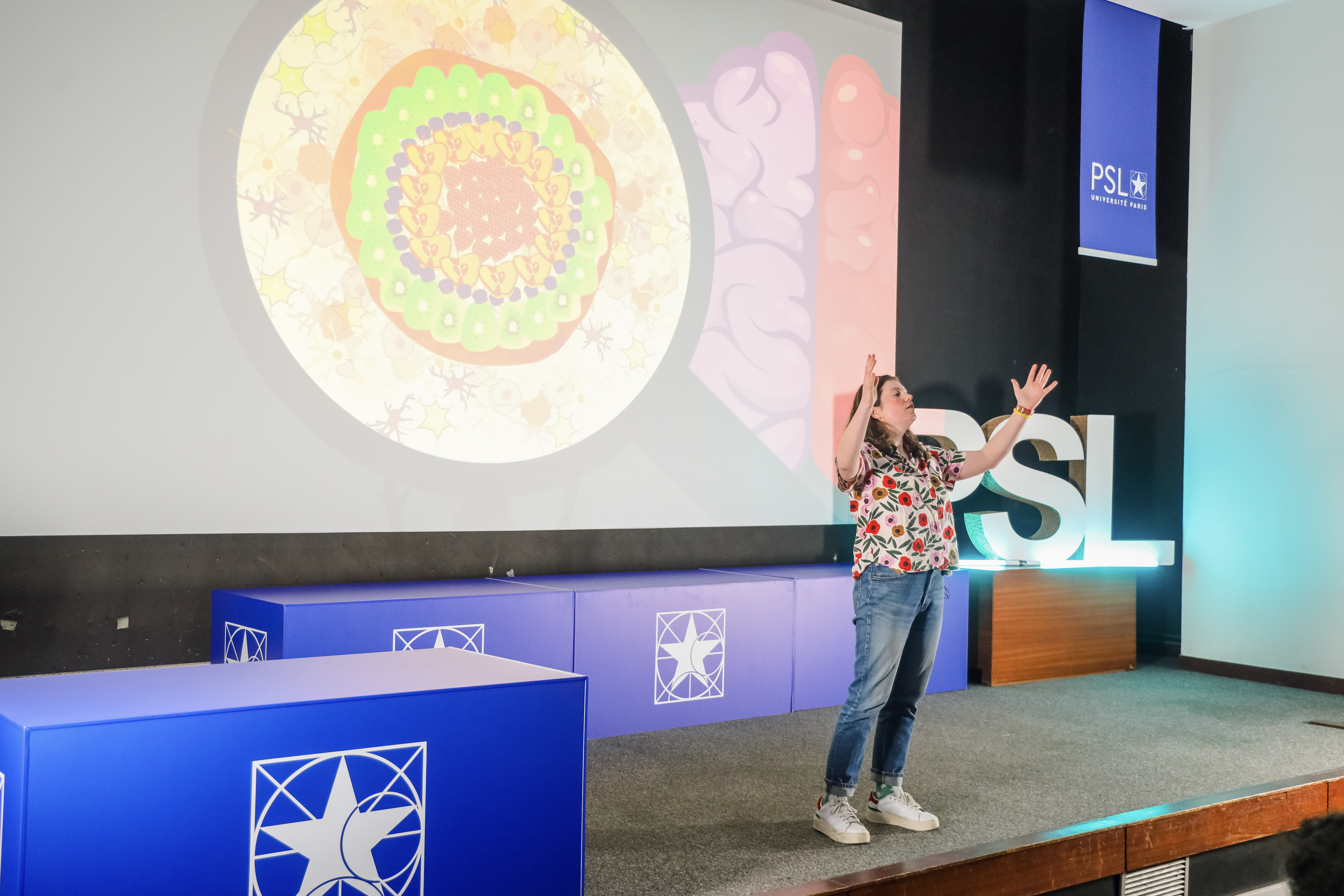SciComm
Make it accessible
Scientific communication is my new playground. But what is scientific communication ? Science communication is the practice of informing, raising awareness of science-related topics, and also getting involved with audiences that include, at least in part, people from outside the science community (1).As current governments are announcing budget cut for research across all areas, I believe informing the public what is at stakes when there is no research, why we need it and how do we do it is crucial.
I had the chance to participate in multiple events during my PhD which are summarized below with little explanations.
Pint Of Science France - 2025
(to come)
My Thesis in 180 seconds - 2025
“Ma thèse en 180 secondes” (Three Minutes thesis) is an international science popularization competition open to French-speaking PhD students from all over the world. Doctoral students must present their research topic, in French and in simple terms, to a diverse lay audience in three minutes, each student must give a clear, concise yet convincing presentation of his or her research project. In 2025, I have participated in a training on science popularization led by Jean-Marc Galan . It was a really transformative training which gave me the opportunity to participate to the competition along my colleagues from PSL University.
My talk, untitled “Les cancers du cerveau, ce n’est pas de la tarte (ou presque)” aimed at presenting my PhD project by borrowing the analogy of the fruit tart to explain spatial transcriptomics and the tumor microenvironment. You can whatch the video here: link to come (27min).

La Fête de la Science - 2023
The Fête de la science is a free, popular event that celebrates science, technology and innovation throughout France. It is open to all, and helps to promote the sharing of knowledge between scientists and the general public. It takes place every year in the first half of October in France, overseas and abroad. During this event, thousands of scientists, teachers, cultural mediators and librarians share their enthusiasm and curiosity for science, technology and innovation with the public, through a wide range of activities: laboratory visits to discover what goes on behind the scenes of research, science cafés to learn over a drink, live shows to experience a cross between art and science, experiments in a fablab to touch science with your fingers, or a stroll through the many science villages, real meeting places in the heart of towns
Every year, the Institut Curie is openning to all for the festival . In 2023, I had the opportunity to participate to the animation of a workshop to extract DNA from kiwifruit and bananas. Do you know that the most common kiwifruit is allohexaploid with 29 pseudo-chromosomes? It makes it very easy to see the DNA when extracting it with dish soap from the kiwi, but less practical for genome assembly.